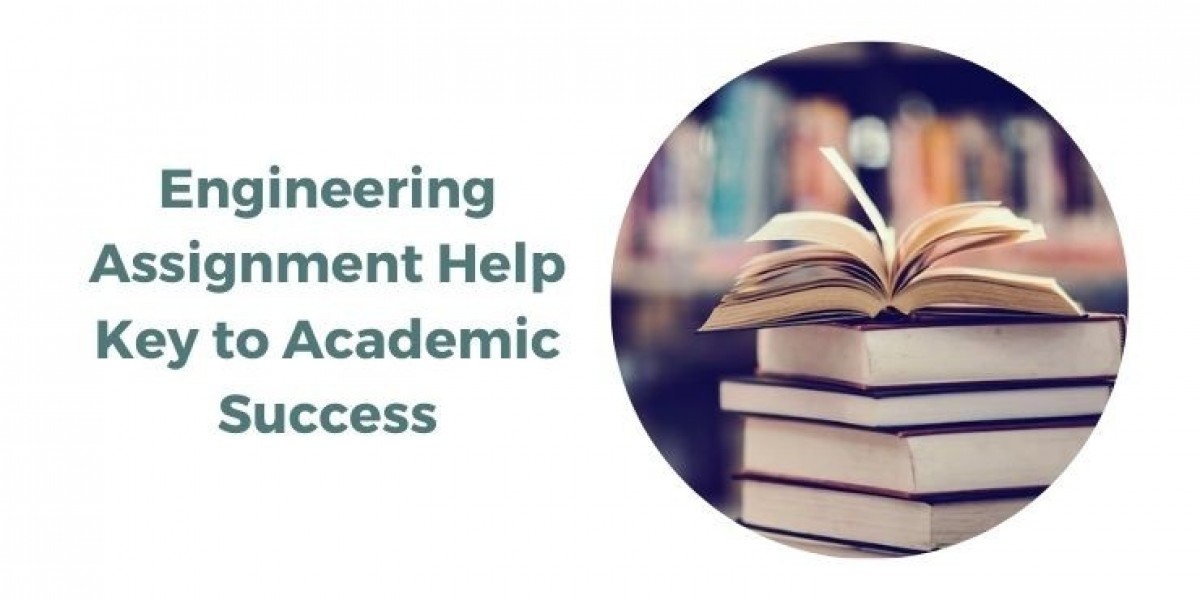Engineering is one of the most rigorous academic fields, demanding not only theoretical knowledge but also the practical ability to apply concepts in real-world situations. Students pursuing degrees in mechanical, civil, electrical, or computer engineering are required to complete numerous assignments that often involve detailed calculations, innovative designs, and the use of specialized software. When combined with the pressure of exams, project work, and internships, these demands can overwhelm even the most diligent students. This is whereEngineering Assignment Helpbecomes essential, offering structured support that leads to better academic outcomes and overall success.
The Demanding Nature of Engineering Education
Engineering programs are intensive by design. They are structured to equip students with the tools needed to solve complex problems and design systems that improve the world around us. However, the curriculum often includes:
Advanced mathematics and physics
Technical writing
Software simulations
Laboratory reports
Team-based design projects
Students are expected to be proficient in all of these areas while also developing soft skills such as communication, leadership, and time management. Balancing these requirements alongside personal responsibilities can be incredibly difficult.
Assignments in engineering arent just about finding the right answer. They require methodical reasoning, proper formatting, and logical presentation. A single mistake in calculation or misinterpretation of a design principle can impact the entire solution. The intensity of this academic load makes external academic support a practical necessity for many.
Time Management and Stress Reduction
One of the biggest challenges for engineering students is managing time effectively. A single engineering assignment might require several days of workfrom understanding the topic, conducting research, solving problems, writing the report, and proofreading for accuracy. This becomes more difficult when multiple assignments are due within the same week.
Academic support allows students to delegate some of the workload, freeing up time for revision, exam preparation, and extracurricular development. By reducing last-minute panic and workload stress, students can focus better on learning rather than simply completing tasks for submission.
Enhancing Learning Through Expert Guidance
Receiving help doesnt mean students arent capable. On the contrary, working with knowledgeable professionals can deepen understanding. These experts often present solutions in a way thats clear, logical, and easy to follow. By studying these solutions, students learn different techniques and methods they might not have considered before.
For example, an electrical engineering student struggling with circuit design may gain clarity from a step-by-step explanation that breaks down complex ideas into manageable parts. This form of learning, when paired with classroom instruction, reinforces the student's confidence and helps them perform better in assessments.
Exposure to Industry-Relevant Techniques
Long-term success in the quickly changing area of engineering depends on keeping up with the latest techniques, tools, and trends.Assignments that require software tools like MATLAB, AutoCAD, SolidWorks, or programming in languages like Python or C++ can be particularly challenging for students unfamiliar with these platforms.
External academic support often incorporates industry-relevant solutions and practices. This means students not only complete assignments efficiently but also learn how their coursework translates to real-world engineering problems. This kind of exposure can give students a competitive edge when applying for internships and jobs.
Improving Academic Writing and Presentation
Technical knowledge is only one part of a well-rounded engineering education. Students must also know how to present their ideas in writing. Reports should be logically organized, clearly written, and appropriately referenced. Many students lose marks not because their ideas are incorrect, but because they fail to communicate them effectively.
Working with skilled academic professionals teaches students how to format their assignments correctly, write concise introductions, and explain solutions in a clear, coherent manner. This not only improves grades but also helps students build strong communication skills, which are crucial in any engineering role.
Adapting to Educational Standards
For international students or those transitioning to university-level education, adapting to new academic standards can be a major hurdle. Different institutions have unique expectations regarding citation styles, assignment formats, and grading criteria. Without proper guidance, students may unknowingly make mistakes that affect their academic performance.
Assignment support helps bridge this gap by aligning student work with the expectations of their institution. Students can learn what constitutes high-quality academic writing, how to meet evaluation criteria, and how to avoid issues like plagiarism through proper referencing.
Boosting Confidence and Motivation
Failing an assignment or struggling to complete it can be disheartening. It can affect a students self-esteem and overall motivation. By getting timely assistance, students can turn potential setbacks into learning opportunities. Completing and submitting quality assignments builds confidence, which reflects in other areas of their studies.
Positive results lead to a sense of achievement and encourage students to stay consistent in their efforts. Over time, this builds momentum and sets them on a path toward academic excellence.
Encouraging Ethical Academic Practices
Theres often a misconception that seeking help compromises academic integrity. However, when used correctly, it promotes responsible learning. Ethical use involves reviewing solutions to grasp the method, using the material as a reference, and not submitting someone elses work as your own.
By treating academic assistance as a study aid rather than a shortcut, students reinforce their learning while staying aligned with academic principles.
Conclusion
Achieving success in engineering requires more than just classroom attendance and exam preparation. Its a combination of critical thinking, time management, effective communication, and access to the right resources.Engineering Assignment Help Australiaprovides valuable academic reinforcement that supports student learning and eases the burden of demanding coursework.
By making informed use of such support, students not only complete assignments on time but also enhance their knowledge, improve their writing, and build the confidence needed to thrive in a competitive academic environment. In a field as challenging as engineering, the right guidance can truly make the difference between falling behind and achieving excellence.
FAQs
What is Engineering Assignment Help and how can it support my academic journey?
Engineering Assignment Help refers to professional academic assistance tailored to students pursuing various engineering disciplines. It provides expert guidance, accurate solutions, and support with complex topics, helping students enhance their understanding, improve grades, and manage time effectivelyleading to overall academic success.
Which branches of engineering are covered under assignment help services?
Most services cater to a wide range of branches including mechanical, electrical, civil, chemical, computer, and aerospace engineering. Specialized help is also often available for interdisciplinary subjects like robotics, data science, and environmental engineering, ensuring comprehensive academic support.
Can Engineering Assignment Help improve my practical understanding of concepts?
Yes, by breaking down complex problems into step-by-step solutions, assignment help enhances conceptual clarity. Many services explain the application of theory in real-world scenarios, which builds both academic and practical understanding crucial for engineering students.
Will using Engineering Assignment Help affect my independence as a student?
On the contrary, it can foster academic independence. With expert feedback and clear explanations, students gain confidence in tackling similar problems on their own. Over time, this support acts as a learning aid, empowering students to become more self-reliant in their studies.








